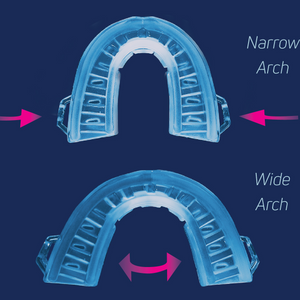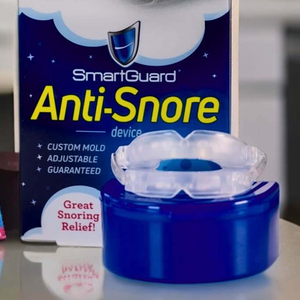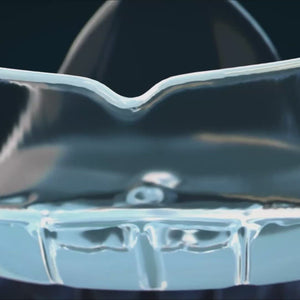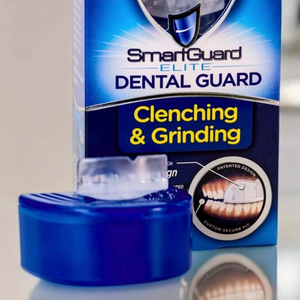Jun 08, 2025
DO YOU GET LOCKED JAW?
DO YOU GET LOCKED JAW?
Locked jaw, or “trismus” happens when the jaw joint is stuck and won’t allow the mouth to open, thereby making eating and even speaking real chores. It’s due to stiff jaw muscles and/or derangement of the jaw joint itself. Several conditions can cause this, including the following:
Tetanus– A bacterial infection that affects the nervous system and can lead to severe muscle stiffness, including in the jaw.
Temporomandibular joint (TMJ) disorders – Issues with the jaw joint can cause pain and limited movement.
Infections– Dental infections, abscesses, or tonsillitis can irritate jaw muscles.
Trauma– Injuries to the jaw or face can lead to stiffness and difficulty opening the mouth.
Radiation therapy– People who receive radiation for head and neck cancers sometimes experience trismus as a side effect.
Neurological conditions – Disorders affecting the nervous system, like Parkinson’s disease, can interfere with muscle control.
It can be frustrating to deal with, but treatment depends on the cause. Physical therapy, medication, or even dental interventions can help restore movement.
HOW LONG CAN A JAW STAY LOCKED?
The duration of locked jaw depends on the underlying cause. It can last for a short time or persist for weeks or even months. Here’s a breakdown:
Temporary (Hours to Days) – If caused by a minor TMJ issue or muscle strain, it might resolve quickly with rest, gentle exercises, jutting the lower jaw forward, or medication.
Persistent (Weeks to Months)– Conditions like tetanus, radiation-induced trismus, or chronic TMJ disorders can lead to long-term jaw restriction, requiring specialized treatment.
Progressive (Ongoing/Chronic) – Some neurological conditions or severe trauma may lead to prolonged or permanent jaw stiffness.
If it's lasting longer than a few days or worsening, it’s best to check in with a doctor or dentist. They can determine the exact cause and recommend treatment.
HOW TO TREAT LOCKED JAW
Treating a locked jaw depends on the cause. Here are some effective approaches:
Muscle Relaxation Techniques – Gentle jaw exercises, warm compresses, and massage can help loosen tight muscles.
Medications– Muscle relaxers, anti-inflammatory drugs, and pain relievers can reduce stiffness and discomfort.
Physical Therapy – Specialized therapy, including ice and heat compresses, can improve jaw mobility and reduce tension.
Dental or Medical Interventions– If caused by TMJ disorders or infections, treatments like bite splints, dental work, or antibiotics may be necessary.
Stress Management – Since stress can contribute to jaw clenching, relaxation techniques like meditation or breathing exercises may help.
Surgical Options – In severe cases, procedures like joint injections or surgery may be required to restore function.
CAN LOCKED JAW THREATEN YOUR LIFE?
Locked jaw (trismus) can be life-threatening in severe cases, particularly when caused by tetanus. Tetanus is a bacterial infection that produces toxins affecting the nervous system, leading to painful muscle contractions, including in the jaw. If left untreated, tetanus can cause breathing difficulties, seizures, and even death.
However, thanks to widespread vaccination, tetanus-related deaths are rare in developed countries. Other causes of locked jaw, such as TMJ disorders or muscle strain, are generally not fatal but can significantly impact quality of life. If someone experiences persistent or worsening symptoms, seeking medical attention is crucial.
WHAT ABOUT ICE AND HEAT FOR A LOCKED JAW?
Both ice and heat can help relieve a locked jaw, but they work in different ways:
Ice (Cold Therapy)– Helps reduce inflammation and swelling, especially if the jaw is locked due to an injury or sudden pain. Applying an ice pack for 15-20 minutes can numb the area and ease discomfort.
Heat (Warm Compress) – Improves blood circulation and relaxes tight muscles, making it useful for jaw stiffness caused by TMJ disorders or muscle tension. A warm, moist compress applied several times a day can help loosen the jaw.
If the jaw remains locked for an extended period, combining both methods or seeking medical advice may be necessary.
CAN CLENCHING ONE’S TEETH CAUSE LOCKED JAW?
Bruxism, which is the clenching or grinding of one’s teeth, can cause a locked jaw. It is often caused by stress, anxiety, sleep disorders, or even certain medications. If left untreated, it can lead to pain, headaches, and difficulty opening the mouth.
Teeth grinding can lead to a locked jaw by overworking and tightening the jaw muscles and by causing inflammation in the jaw joint. Here’s how it happens:
Muscle Fatigue – Constant grinding strains the jaw muscles, making them stiff and difficult to move.
Temporomandibular Joint (TMJ) Stress – Bruxism puts excessive pressure on the TMJ, leading to inflammation and restricted movement.
Jaw Misalignment – Over time, grinding can alter the way the jaw fits together, increasing the risk of locking.
Nerve Irritation – The repetitive motion can irritate nerves in the jaw, causing spasms or involuntary muscle contractions.
Managing stress, using a good mouth guard, such as the SmartGuard Dental Guard, and practicing jaw relaxation techniques can help prevent worsening symptoms.







